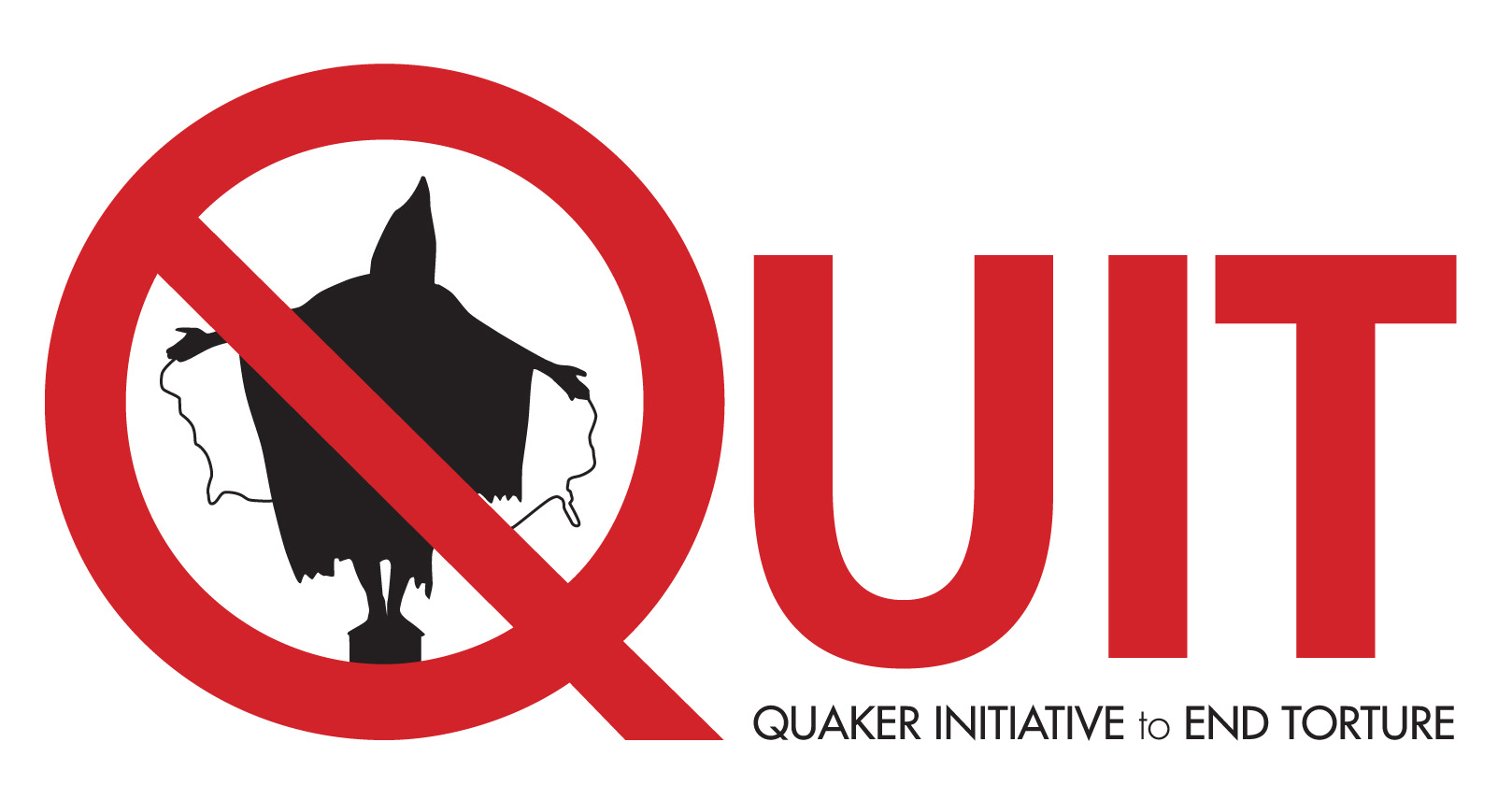When the Torturers Come Home
This article appeared in the November 2005 issue of Peacework, published by the New England Regional Office of the American Friends Service Committee, and is reprinted with their permission.
Liz Keeney lives in Gambier, Ohio where she is a tutor, chaplain, and baker. She is a member of the Delaware, Ohio Monthly Meeting of Friends.
Around the dinner table with my outwardly respectable family, my father's contributions to conversation were often tales of his exploits in World War II. I didn't know until much later that other children didn't have to sit through descriptions of horrific actions taken against "the enemy"by Army Intelligence and pretend that these were acts of heroism. I did, however, know early on that there was something wrong about them. I knew with the conviction of a child that it was wrong to throw grenades into crowded basements and then brag about it, or to laugh about machine-gunning deer for fun. And at some level, I guess I knew it was wrong to be able to talk about it with sufficient detachment that one could simultaneously be eating dinner, as though one were talking about baseball or the garden.
I also knew early on that my father was not always safe to be around. He was brilliant and successful --- and he was abusive and dangerous. Trying to figure out who was there at any given moment was hard. These days I think more about the time we spent in the family vegetable garden, building a vacation house, or fishing, than I do about the abuse he perpetrated on me and others, but it has taken fifty years to get here. I don't think he understood himself any better than those of us around him did. One moment he was the father who in 1960 gave me, a six-year old girl, a toolbox with real tools and let me put the bottom two rows of shingles on the new house.The next moment he would be sexually or physically or emotionally abusing me and acting as though that were perfectly normal.
I think he was himself an abused child. The photos taken of him before about age four and those taken later show markedly different affects. There is also is a history of bipolar disorder in the family. My father's ability to dissociate, however, was more powerful than that of anyone I have ever known personally or professionally and I believe the war played a large role in that. One night he rose from the dinner table, took a wounded baby rabbit away from the family cat,walked to the kitchen disposal, dispatched it, and then returned to the table and resumed eating.A minute or two later he noticed that no one was eating, not my brother, mother or me, not the couple there as guests. "What?" he said, looking perplexed. "What's the matter?"
My father's threats about the awful things that would befall me if I told about what he was doing to me were frequent and real. I knew full well that he could and would kill me. The clincher was when he told me that even when he couldn't see me, God could -- and if I told, God would getme. The fact that I was trapped on a small fishing boat with him and he was calmly killing a fish as he told me this, made vivid what God would do. And I was very, very scared. Somehow, the idea that he would kill me had lost some of its edge. I think if you live with a threat long enough that happens, but in pulling God in, my father upped the ante.
He also left me not wanting much to do with God for a long time. And when I did come back to God, I found myself angrier at my father than I had been in years because in my view he had, in using God as a threat, abused God as well as me. Thankfully, I was a seminary student at the time of this grappling and surrounded by loving friends and teachers who helped me to process the anger into grief and then begin to repair that piece of damage.
I think it takes a lot to wound someone so badly that they can do the kinds of things my father did, and over the years that is the way I have made at least a certain degree of peace with the side of him that was abusive of me and of others. I think that what he experienced and saw during the war turned a vulnerable young man into someone who could and did torture others, first in the context of war, then in the context of an ongoing relationship with the civilian intelligence community, and finally in the context of family.
I worry a lot about the young people who are experiencing today's Iraq war in our name. What will the legacy of their time in combat be? How many will participate in torture directly or indirectly? What will the impact be on them? What will be their legacy? It's harder for me to find compassion for the leaders who have sanctioned the abuse and who continue to protect each other. I have to work at remembering to pray for people who are abusive, and as the stories of Abu Ghraib and Guantánamo continue to emerge, those at the top seem much guiltier to me than those caught up in the system. Perhaps some day I will understand and forgive, but of course what I really want is a world in which young children don't have to wrestle with the demons their mothers and fathers bring home from war.
